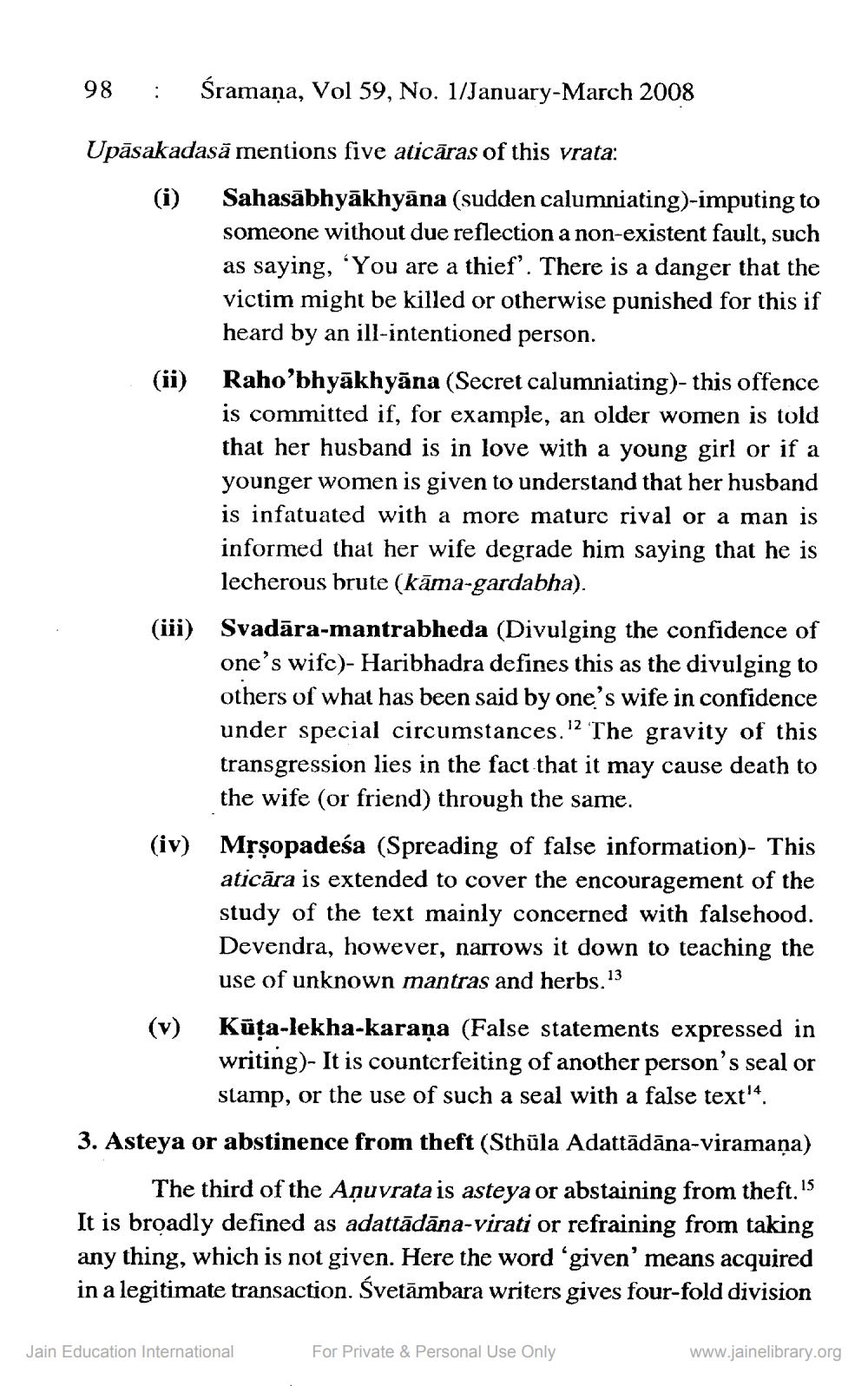________________
98
1: Śramana, Vol 59, No. 1/January-March 2008
Upāsakadasā mentions five aticāras of this vrata:
(i)
(ii)
Sahasabhyakhyāna (sudden calumniating)-imputing to someone without due reflection a non-existent fault, such as saying, 'You are a thief'. There is a danger that the victim might be killed or otherwise punished for this if heard by an ill-intentioned person.
Raho❜bhyākhyāna (Secret calumniating)- this offence is committed if, for example, an older women is told that her husband is in love with a young girl or if a younger women is given to understand that her husband is infatuated with a more mature rival or a man is informed that her wife degrade him saying that he is lecherous brute (kāma-gardabha).
(iii) Svadāra-mantrabheda (Divulging the confidence of one's wife)- Haribhadra defines this as the divulging to others of what has been said by one's wife in confidence under special circumstances." The gravity of this transgression lies in the fact that it may cause death to the wife (or friend) through the same.
(v)
(iv) Mṛṣopadeśa (Spreading of false information)- This aticăra is extended to cover the encouragement of the study of the text mainly concerned with falsehood. Devendra, however, narrows it down to teaching the use of unknown mantras and herbs. 13
Kūṭa-lekha-karaṇa (False statements expressed in writing)- It is counterfeiting of another person's seal or stamp, or the use of such a seal with a false text11.
3. Asteya or abstinence from theft (Sthula Adattādāna-viramaņa)
The third of the Anuvrata is asteya or abstaining from theft. 15 It is broadly defined as adattādāna-virati or refraining from taking any thing, which is not given. Here the word 'given' means acquired in a legitimate transaction. Śvetāmbara writers gives four-fold division
Jain Education International
For Private & Personal Use Only
www.jainelibrary.org




